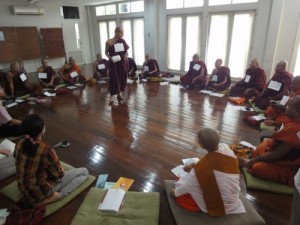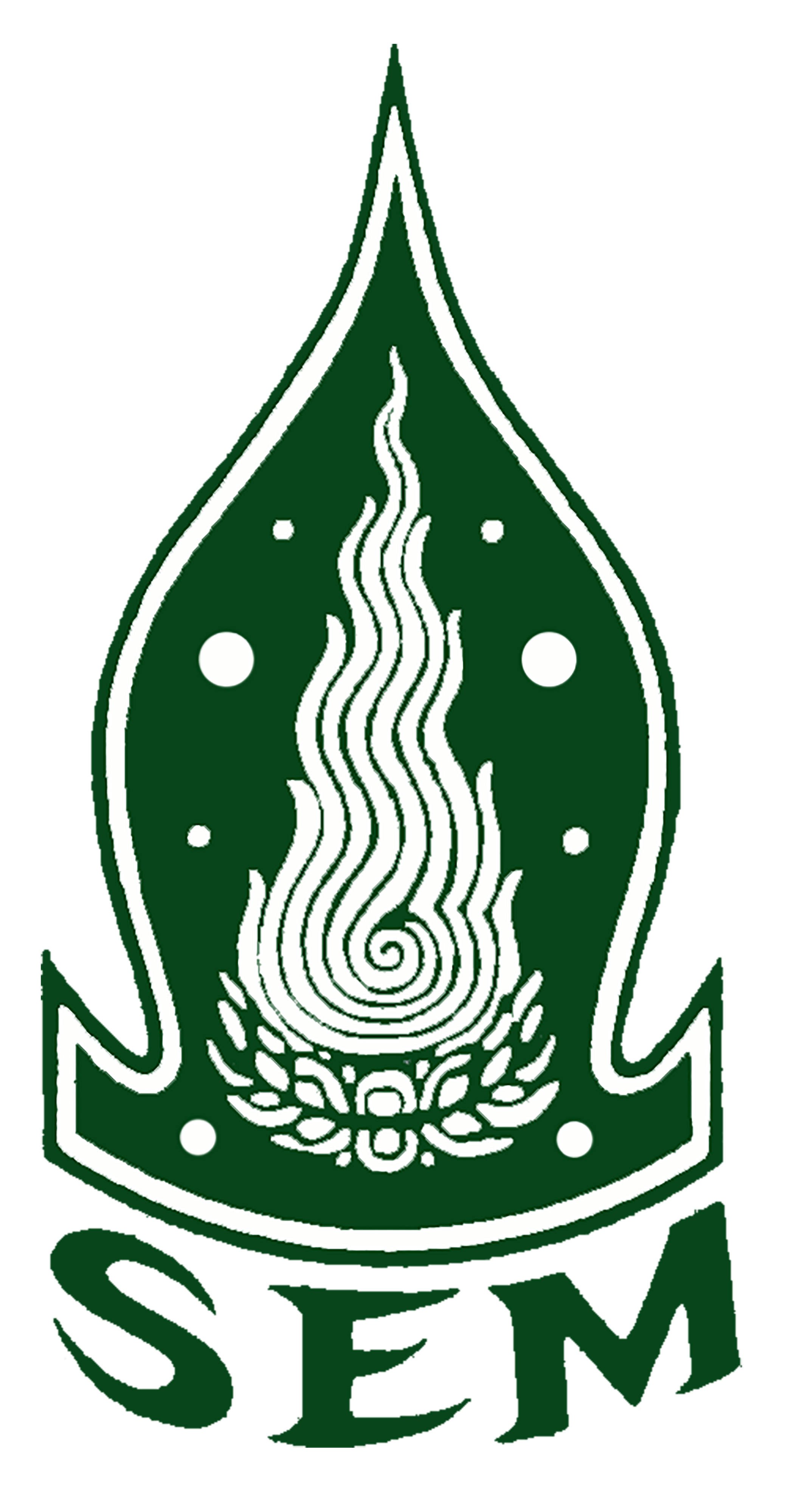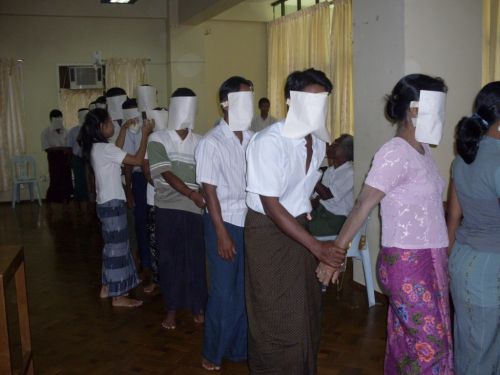From 2013 this programme will localise, and be run by the existing staff in Myanmar under the name of Gaia Sustainable Management Institute.
Buddhist Youth Empowerment Programme
This programme emerged in 2008, through the collaboration of an interfaith group including Burma/Myanmar GLT alumni, who identified of a lack of opportunity and hope for youth within the country, both in terms of livelihood opportunities, and space to contribute to society. With the original focus on Buddhist youth, the programmes aims were for motivation of youth and development of leadership skills, tools and knowledge for community organising, and networking among core groups, which were set up by participants after attending trainings in their local areas.
The programme has expanded greatly since it began, with over 500 youth trained in leadership, facilitation and PRA, peacebuilding, environmental awareness, and other community development-related skills. These youth continue to be active in core groups around the country, that are evolving into small, adept local organisations with capacities to facilitate community organising.
This programme is now being facilitated by the existing team, under their newly formed organisation, the Kalayana Mitta Foundation.
Cyclone Nargis Capacity Building and Networking
SEM has been involved in Cyclone Nargis recovery and rehabilitation work since the cyclone struck in May, 2008. Initially, local groups were supported for emergency disaster relief, which developed into a community organising response through the lessons learned from community groups in Thailand in the wake of the 2004 Tsunami. Local partner groups were supported to strengthen the capacities of affected communities in order to initiate their own recovery and rehabilitation through participatory and empowering means, leading to long term self reliance. A further aim has also been to strengthen the capacity of local partner organizations in order for them to facilitate this process effectively and in an empowering way with the communities involved, and in the long-term, to be part of a growing movement of local grassroots organizations with the means and vision to perpetuate resilient and community led development in Burma/Myanmar.

Since 2009, there has been an expanding emphasis of the programme on community exchanges between communities targeted by local partner organisations. This is in order to provide a platform for communities for collaboration and mutual support. This brings in a macro-level analysis from which networked communities are able to see themselves as a driving change to solve big problems.
CPME – Coalition for the Promotion of Monastic Education
The CPME programme began in 2009, a collaboration between a local monastic school, an international donor organisation, SEM and friends who believe that the creation of a more socially just, peaceful, and sustainable society in Myanmar requires the engagement and attitudinal transformation of all segments of society, especially the poor and marginalized who constitute the majority of the population. The entry point for such engagement is believed to be changing the education system within the monastery-based schools, which provide schooling to more than 10% of the poorest school-aged children (or more than 250,000 children).

By supporting transformation of the monastic schools system, the project hopes to change the learning in monastic schools to go beyond the inculcation of basic literacy and numeracy, to foster among abbots, teachers and children ethical values, self-esteem, critical thinking and life-skills to build better lives for themselves and their communities. That is believed to be the most effective way to empower the poor towards personal and communal transformation and progressively break the cycle of poverty and climate of hopelessness that pervades most of the poor of Myanmar today.
To achieve this long-term vision, the decision was to establish an institutional umbrella for the project, called the Centre for Promotion of Monastic Education in Mandalay in collaboration with Phaung Daw Oo Monastic School, for provision of effective and systematic training for monastic school abbots/principals and teachers to change the way they traditionally run monastic schools. The aim was to develop a selected number of monastery- based schools as model centres of holistic learning for children and members of the community which simultaneously transform attitudes, promote analytical thinking, and inculcate practical life skills. This is promoted through training and exposure of Abbots/principals in management of child friendly schools, and training of teachers to develop their knowledge and skills to stimulate children?s learning and thinking by focusing on self-awareness, pedagogical methods in RWCT/CCA, and practical life-skills. A further centre was set up in Yangon in 2011, named Spiritually Engaged Monastic Schools (SEMS). Now with two hubs, over its 3 years implementation, the programme has reached to 60 monastic schools, and up to 20,000 children.
In 2013, the CPME programme won the 7Day News ‘Social Hero’ Award, presented to both Ven. U Nayaka of CPME, and Ko Tar of SEMS.
A further evaluation of its 3 year phase and the story of transformation that has underlay its success(2010-2012) is available here.







